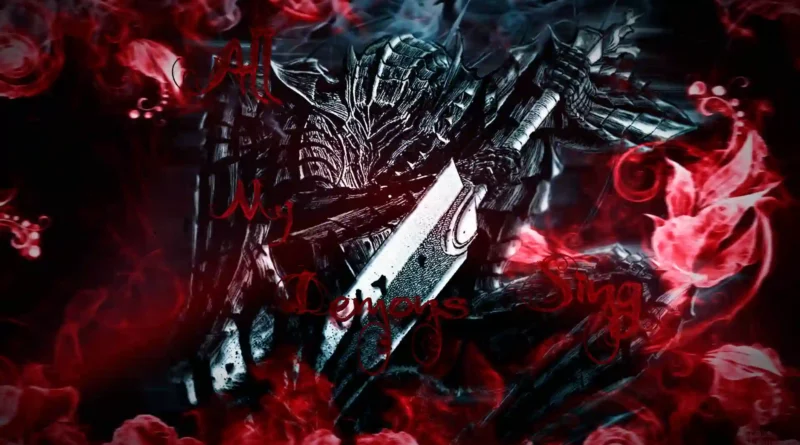The Emotional Impact of Berserk: A Fan’s Perspective
Berserk, the dark fantasy masterpiece crafted by Kentaro Miura, transcends the boundaries of traditional storytelling, immersing readers in a world that is as haunting as it is captivating. Beyond its visceral battles and supernatural horrors, the emotional impact of Berserk resonates profoundly with fans worldwide. In this article, we explore the emotional journey that fans embark upon, examining the themes and moments that elicit a spectrum of feelings, from sorrow and despair to resilience and hope.
Profound Themes of Betrayal and Loss:
At the core of Berserk’s emotional impact is the exploration of profound themes, chief among them being betrayal and loss. The Eclipse, a cataclysmic event within the Golden Age Arc, marks a turning point that leaves an indelible scar on the characters and the readers alike. The brutal betrayal of the Band of the Hawk, orchestrated by Griffith, is a narrative gut punch that resonates throughout the series.
Fans are confronted with the raw emotion of loss as characters they’ve grown attached to meet tragic fates. The emotional weight of Guts’ trauma, Casca’s shattered psyche, and the haunting aftermath of the Eclipse become a shared experience, fostering a deep connection between the narrative and the emotions of the readers.
Empathy for Complex Characters:
Berserk’s characters are not mere archetypes; they are complex and flawed individuals whose struggles evoke empathy from readers. Guts, the protagonist, epitomizes resilience in the face of overwhelming adversity. His journey from a lone mercenary to the Black Swordsman is fraught with pain, loss, and an unyielding pursuit of revenge.
Readers empathize with Guts’ internal turmoil, witnessing his struggles against both supernatural horrors and the demons of his own past. Similarly, characters like Casca, Griffith, and the members of the Band of the Hawk are portrayed with a depth that allows fans to connect with their joys, sorrows, and moral complexities.
Camaraderie and Loss Within the Band of the Hawk:
The camaraderie established within the Band of the Hawk becomes a poignant focal point of the emotional narrative. Readers witness the bonds forged on the battlefield, the laughter shared in moments of respite, and the genuine connections that make the eventual betrayal during the Eclipse all the more devastating.
The loss of characters like Judeau, Corkus, and Pippin reverberates emotionally, and fans mourn alongside Guts for the fallen comrades. Miura’s ability to imbue each character with unique qualities ensures that their deaths are not just plot points but emotionally charged events that echo long after they occur.
The Struggle for Identity and Purpose:
Guts’ struggle for identity and purpose is a central thread that elicits a deep emotional response from fans. The weight of the Brand of Sacrifice, the constant threat of demonic entities, and the cyclical nature of violence propel Guts into an existential odyssey. Readers empathize with his internal conflicts as he battles not only external foes but also the demons within.
The theme of searching for identity and purpose resonates universally, making Guts’ journey a reflection of the human condition. Fans find themselves emotionally invested in Guts’ quest for meaning, rooting for him to discover a semblance of peace amid the chaos.
The Redemption of Griffith:
The character of Griffith, initially admired for his charisma and leadership, undergoes a transformation that elicits complex emotions from fans. His descent into Femto, the fifth member of the God Hand, marks a fall from grace that inspires a mix of revulsion and pity. The emotional turmoil surrounding Griffith’s actions prompts fans to grapple with questions of redemption, morality, and the consequences of unchecked ambition.
As Griffith’s actions echo through the narrative, readers are forced to confront their feelings towards a character who once embodied hope but now personifies the corrupting influence of power.
Visceral Impact of Art and Atmosphere:
Kentaro Miura’s masterful artistry contributes significantly to the emotional impact of Berserk. The detailed and visceral illustrations convey the brutality of battle, the anguish of characters, and the eerie beauty of the supernatural elements. The atmospheric rendering of landscapes and the use of symbolism create a visual language that resonates emotionally, enhancing the overall impact of the narrative.
The Berserker Armor, the haunting landscapes, and the grotesque depictions of demons contribute to the immersive atmosphere, enveloping readers in a world that mirrors the emotional intensity of the characters’ experiences.
The Journey of Resilience and Hope:
Despite the pervasive darkness within Berserk, the narrative also weaves threads of resilience and hope. Guts’ indomitable spirit, the bonds formed with new companions like Isidro and Schierke, and the incremental steps towards healing infuse the story with moments of optimism.
Fans find solace in the characters’ determination to forge ahead despite the overwhelming odds. These glimpses of resilience become emotional anchors, balancing the despair with a fragile sense of hope that keeps readers invested in the characters’ journeys.
Community and Shared Experience:
The emotional impact of Berserk extends beyond the pages of the manga to a global community of fans who share their experiences, interpretations, and emotional reactions. Online forums, fan art, and discussions create a space for fans to collectively navigate the emotional rollercoaster that is Berserk.
The communal aspect of being a Berserk fan fosters a sense of shared emotional resonance. Whether expressing sorrow over tragic events or celebrating moments of triumph, fans find a supportive community that enhances the overall emotional journey of experiencing Berserk.
Conclusion:
Berserk’s emotional impact is a testament to the storytelling prowess of Kentaro Miura. The series transcends the boundaries of its genre, captivating readers with its exploration of human emotions, moral complexities, and the relentless struggle for survival. As fans traverse the emotional landscape of Berserk, they find themselves not merely readers but active participants in a narrative that resonates on a deeply personal level. The emotional impact of Berserk is a testament to the enduring power of storytelling to elicit empathy, provoke introspection, and create an indelible connection between the creator, the narrative, and the hearts of its fans.




